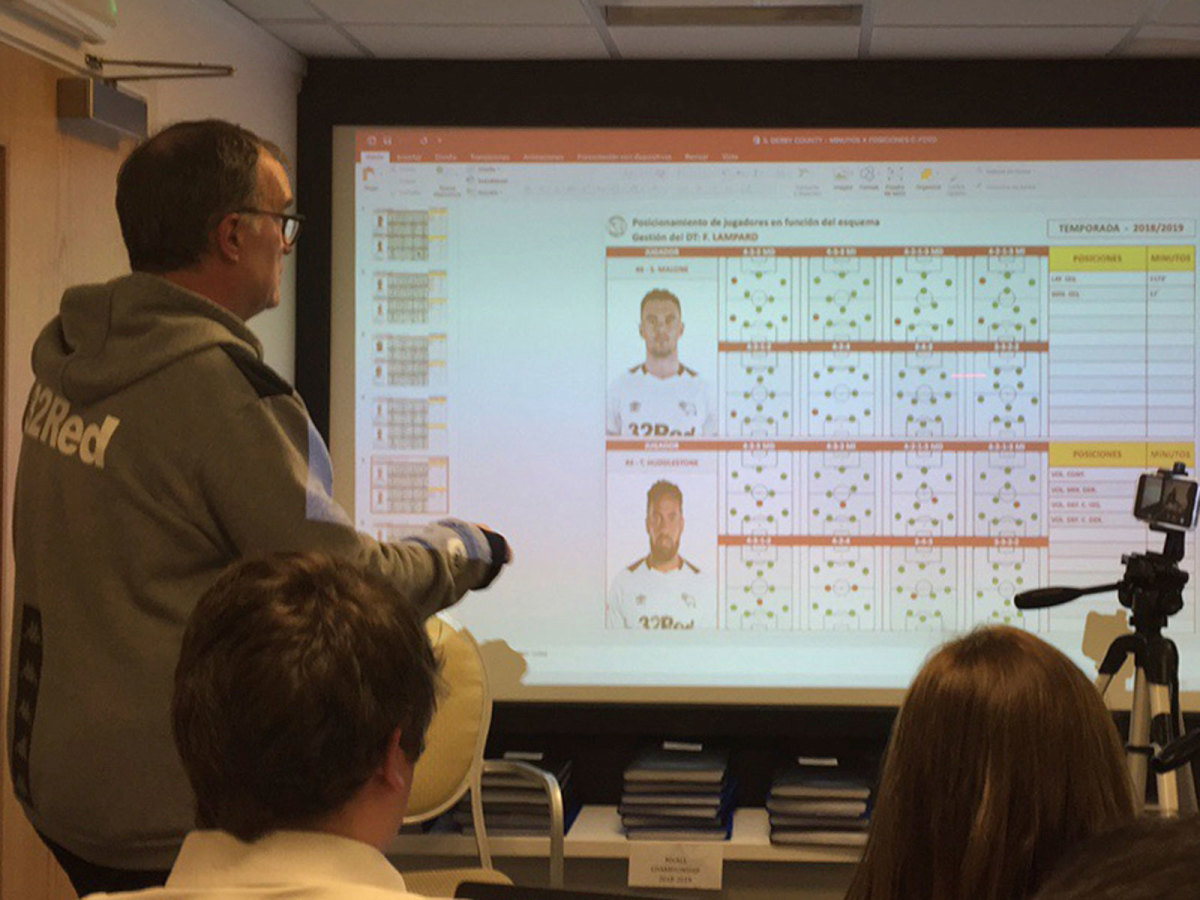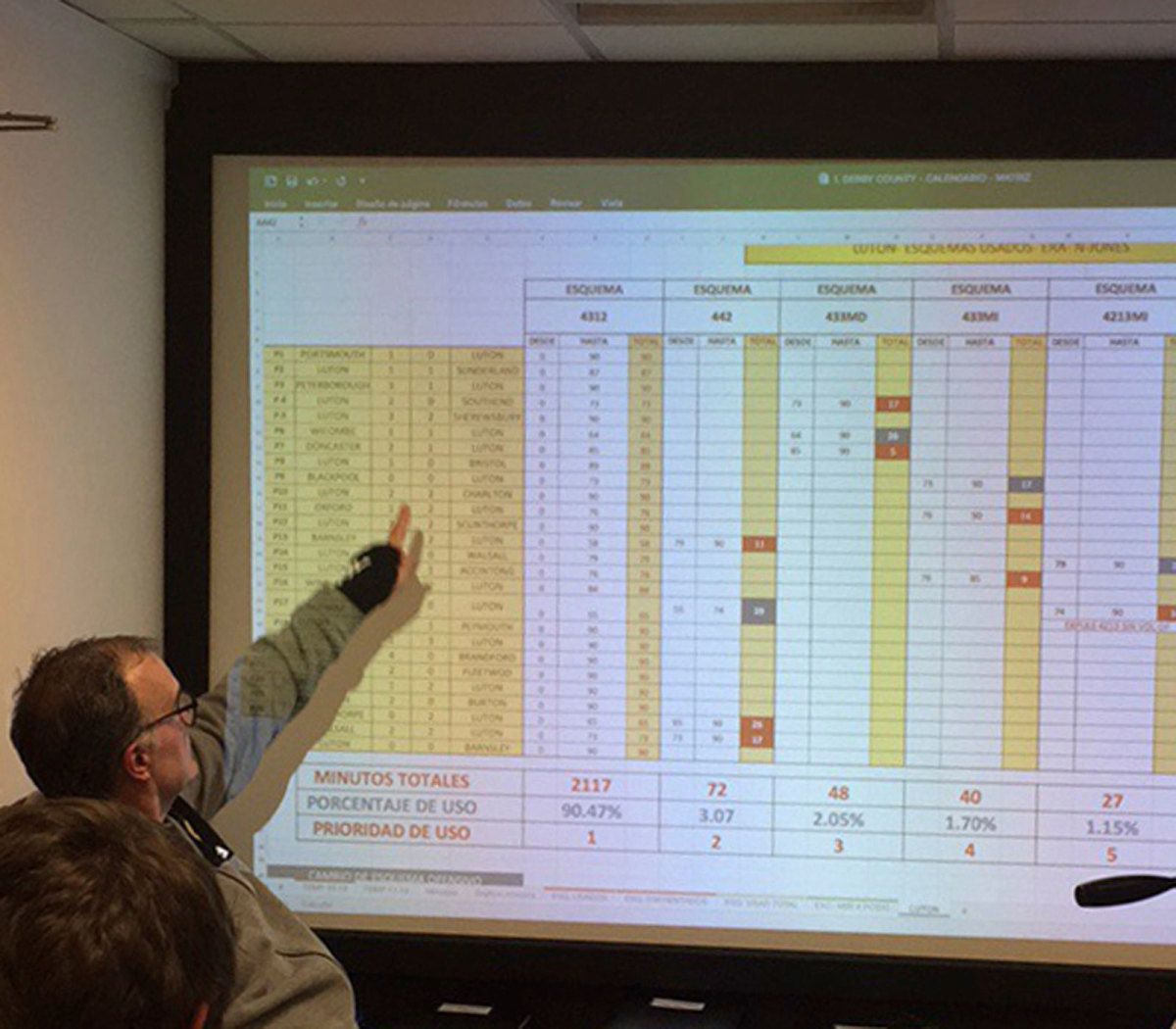Marcelo Bielsa Brilliant, Defiant in Addressing Leeds Spying 'Scandal' Head On

When Marcelo Bielsa announced an extraordinary press conference Wednesday, there was an air of anxiety around Leeds United. His popularity is immense. He has not merely taken Leeds four points clear at the top of the Championship, not merely got his side playing thrilling football with a raft of exciting young players, but he has rejuvenated the whole club.
His humility, his honesty, his self-criticism and his passion have made people fall in love with Leeds again. And here there seemed a serious possibility he would quit. Bielsa is somebody who had a habit of walking out on clubs, and Leeds is just the sort of club to have its dreams extinguished in an entirely futile way.
But he did not. He wanted, he said, speaking in his low monotone voice–translated by his familiar interpreter, Salim Lamrani, a French academic specializing in USA-Cuba relations–to deal with the issue of spying. Last Thursday, a Leeds employee was spotted near Derby County’s training ground armed with pliers and binoculars. Frank Lampard, the Derby manager, took exception and complained about Bielsa having dispatched “a spy.”
English football entered one of its frequent moral panics.
Appalling. Against the spirit of the game. Leeds should be docked points.
Except, no regulation had been breached. The “spy” was on public land. There was no trespassing, no breaking and entering. There may be conventions in other sports and other countries against observing opponents’ training but, despite what various pundits have claimed, there never has been in England.
Andre Villas-Boas, for instance, openly admitted doing much of the same when working at Chelsea for Jose Mourinho. Lampard, of course, was a key part of that team. Perhaps he genuinely is naïve enough not to know this is common practice and always has been, but the general reaction was one of faux-outrage, hypocrisy and, perhaps, xenophobia directed at messianic figure who had dared to offend a popular former England midfielder.
ECHEGARAY: What's Plaguing Coutinho This Season?
Bielsa’s first response, before last Friday’s game against Derby, which Leeds won 2-0, was to take full responsibility himself, to say that he hadn’t realized he was offending against an English cultural taboo (he wasn’t), but that if Lampard was upset, that was enough for him to accept he was wrong.
But the issue rumbled on. Leeds, it was said, had spoken to Bielsa about the issue. Had he reacted badly to that? Was he about to walk? On the contrary, he was about to issue a masterclass in pure bielsisme, and was doing so, he said, to keep the press conference previewing Saturday’s game at Stoke devoid of questions about the spying.
Yes, he had spied on Derby, he said, but he’d also spied on everybody else. He talked about the difficulties of acts that are not illegal but may stray into immorality. He spoke of his work ethic, the guilt he feels if any stone is left unturned. He suggested watching training was essentially useless because he has so much data already, gleaned from publicly available sources.
And then he proceeded to demonstrate just that, dissecting Derby’s tactical approach through a series of PowerPoint slides and spreadsheets.


It was meticulous, brilliant and utterly enthralling. Lampard, having complained about a man in the bushes, found his entire season dissected on a slab in front of the world’s media. It was devastating, and yet it almost certainly wasn’t intended as such. This was simply Bielsa explaining what he does, showing how little watching training would add. Giving the rest of the world a lecture on how to beat Derby was an added bonus he may not even have considered.
Mesmerizing as the presentation was, it was also broadly irrelevant. If spying is wrong, no spreadsheets, no matter how detailed, are going to change that. As it is, though, although the Football League has launched an investigation (fruitlessly, surely, as Bielsa’s confession was more detailed than anything it is likely to turn up), the issue seems an enormous storm in a tea cup. Imagine the legal issues if the league punishes Bielsa or Leeds for breaching a regulation nobody has actually ever written down, or previously acknowledged existed.
The upshot, though, is a further surge in Bielsa’s popularity in West Yorkshire in part because, however inadvertently, he has won the PR war, fighting fire with understated professorial fire; in part because of Bielsa’s obvious integrity, admitting what he has done and publicly examining his conscience; and also because Leeds as a club has lived on the edge of the rules since the days of Don Revie.
Skulduggery and dossiers? Bielsa is giving Leeds fans their United back.
